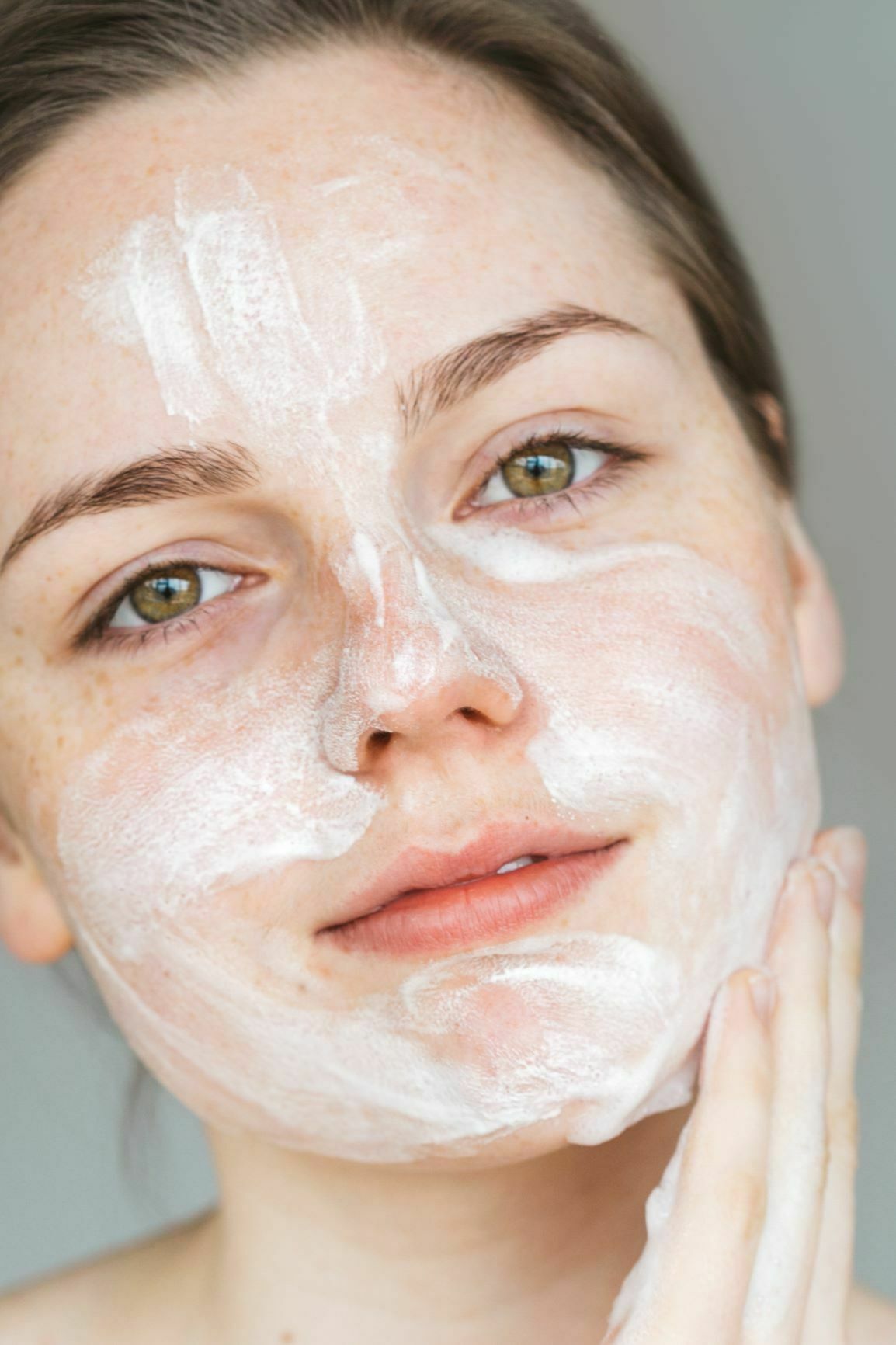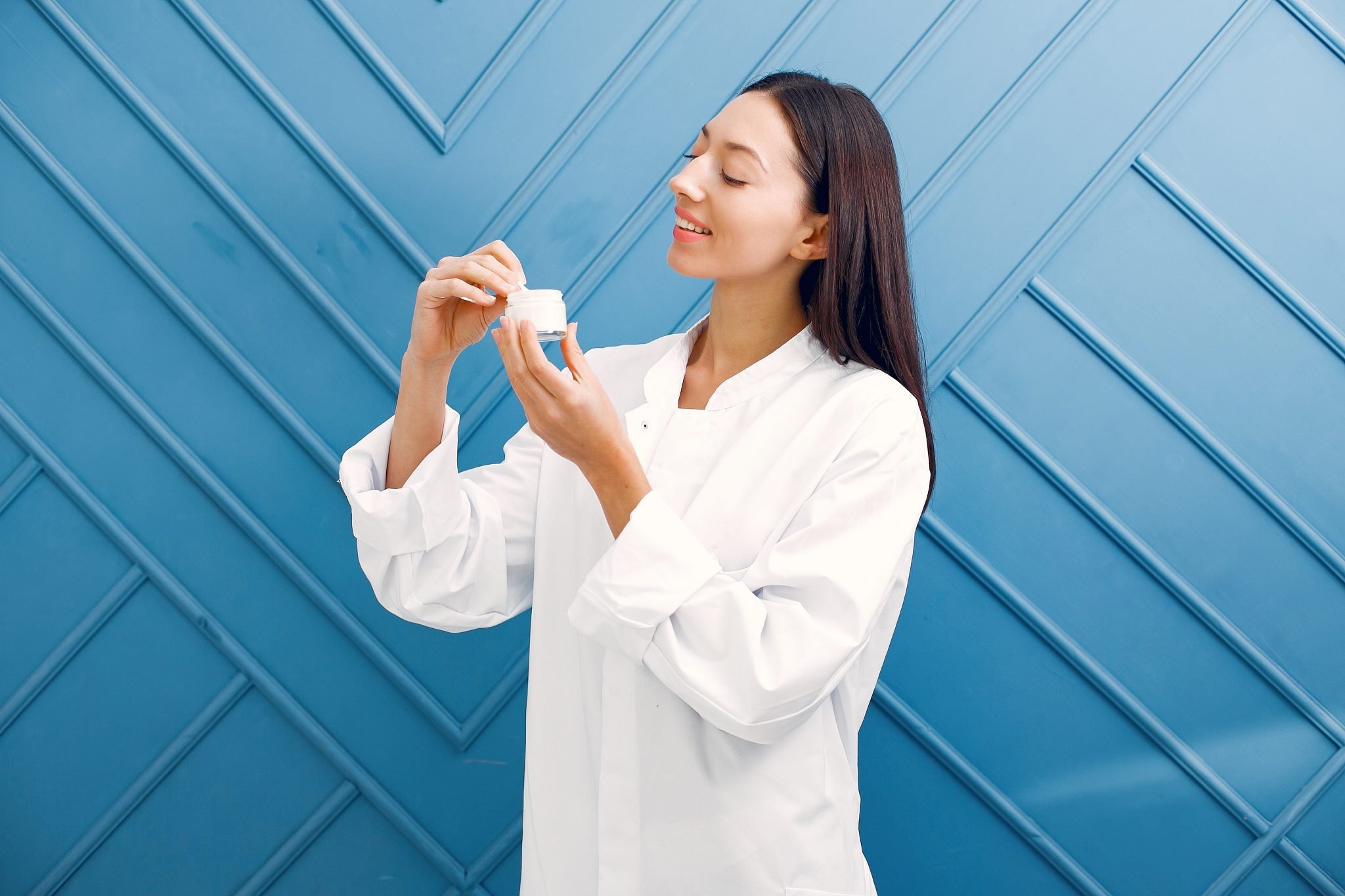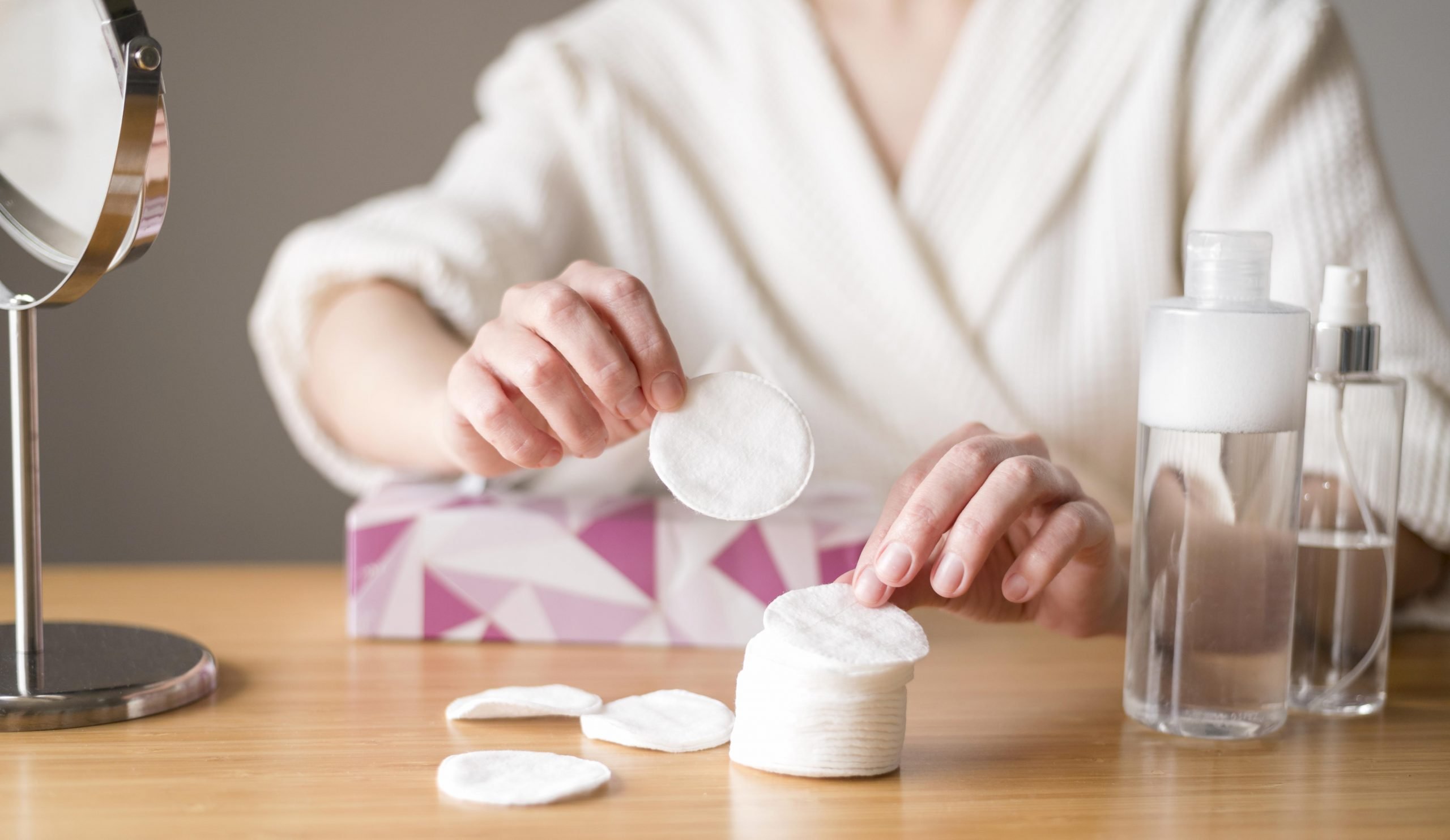Flawless skin is not just a matter of great DNA. In fact, your daily habits play a huge role in earning you that right. But you don’t have to break the bank for a good skincare routine. All you need are the essentials – wash your face as needed, moisturise, and apply sunscreen daily as, ultimately, caring for your skin is simply a personal act on your part.

1. Wash Your Face
There is no rule for how often you need to wash your face, yet we can benefit from doing so occasionally. If you have oily skin, you may see a reduction in your acne when you wash your face twice a day.
Washing your face removes sebum and dead skin cells that lead to acne. This also helps to take off any makeup or skincare products you have applied for the day. If your makeup won’t come off with a gentle cleanser, consider using an oil-based makeup remover like cold cream for this purpose.
Splash your face with water, massage a facial cleanser on with your fingertips, and rinse. Avoid using bar soaps on your face as they contain chemicals that can strip away too much of your skin’s natural oils. For specialised needs, use cleansers with exfoliants like salicylic acid or benzoyl peroxide for acne, as well as those that are hypoallergenic for sensitive skin.
Avoid using cleansers that contain microbeads as these can irritate the skin. These microbeads are also problematic as they often end up in lakes and oceans and contribute to water pollution.

2. Moisturise
A good moisturiser can increase the water content of your skin. We should moisturise at least twice a day, especially if your skin is dry, if the weather is dry, or if you do sports that can end up drying out your skin. You can moisturise less or skip this step if your skin hardly feels dry. Alternatively, you can try moisturising and see if your skin looks and feels better.
Moisturisers also help to retain water in your skin and everything works better when the skin has enough water. Skin cells naturally exfoliate themselves and your skin will be able to do its job much better as a barrier to the outside world. Skin conditions such as eczema and acne also tend to flare up when your skin is dry.
A good moisturiser will have two types of ingredients – humectants to attract water and occlusive to keep it from evaporating. Emollients like lanolin and cetearyl alcohol help the skin to feel soft and they can provide a bit of occlusive function as well. If you have allergies or sensitive skin, you should avoid using products with fragrances and essential oils.

3. Finding the Right Sunscreen
It doesn’t matter who you are or what you do, we all need sunscreen and you should wear it every day, all year round, whether you plan to spend time outdoors or not. Sunscreens can help to prevent sunburn and skin cancer as well as the thickening and wrinkling of skin that comes with age.
Not all sunscreens are sticky and greasy. Sunscreens come in many different forms, from sprays to lotions to deodorant-like sticks. It is also an element of many makeup products and moisturisers. The only difference between day and night moisturisers is that the daytime ones have sunscreen while the night-time ones don’t.
For sunscreens, the higher the SPF, the better. SPF (sun protection factor) measures how long a sunscreen can protect your skin from the reddening and sunburn caused by UV rays. The higher the rating, the more UV rays the sunscreen blocks. Once you’re up to SPF 30, you are already blocking out 97% of UV rays, so it may not be worth paying extra for SPF 50 or SPF 100.
Remember that sunscreen tends to rub off and wash off when you sweat so you may need to reapply. You may want separate products for moisturising and for sun protection. That way, you can reapply as much sunscreen as necessary without wasting on the moisturiser.

4. Explore to Learn More
As you head out into the world of skincare, remember it is not easy to find solid, science-based, unbiased advice on skincare. Everyone will have something to say about the products they use.
It can be fun to try new products and if you enjoy luxuriating in a complicated routine, which is fine. As long as you don’t go for products that are harmful and you don’t fool yourself into thinking that the health of your skin depends on your 20-product routine.
Many skincare products tend to contain components that are regulated as drugs as they can treat or prevent conditions like acne. Experiment with care and caution and remember that if you have a specific problem, you may waste less of your time and money in the long run if you just asked a dermatologist for advice.
To figure out what works for you, keep track of what you use and when. Some treatments can take a while to show results and your skin may get worse before it gets better.

